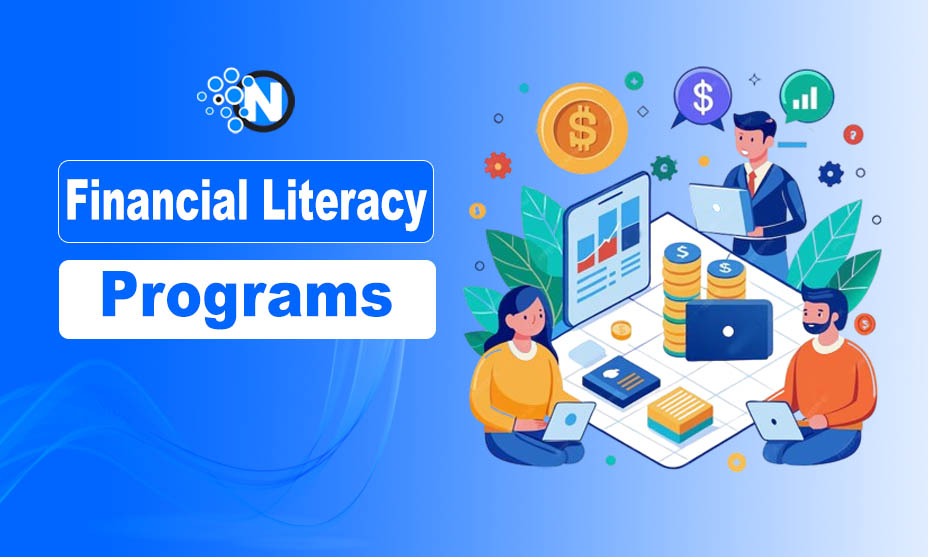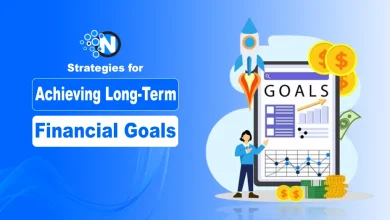Financial Literacy Programs: Empowering Communities through Education

Every walk of life is impacted by financial literacy, whether it is grocery shopping or retirement planning. However, a lot of people still lack the abilities and information required to properly handle their finances.
Financial literacy programs aim to address this by providing people with the resources they need to make informed decisions. These programs help people individually as well as positively impact entire communities.
The Significance of Financial Literacy
Consider going through a challenging maze without a map. To individuals who are not financially literate, managing money can feel like that. It involves more than just being able to read a bank statement and balance a checkbook.
Knowing how money works and how to make it work for you is a necessary part of being literate. Resources like Innovationcu.ca Credit Union provide tools and information to enable people to understand and successfully manage their finances.
Making Informed Decisions
People that are financially literate are better able to make informed decisions. Understanding the fundamentals of investing, saving, budgeting, and credit management will help you make decisions that support your objectives. The possibility of accruing debt or falling victim to fraud is decreased with this understanding.
Building Confidence
Possessing financial knowledge increases self-assurance. Key concept understanders feel less anxious about the future and more in control of their finances. They have the freedom to set and achieve reasonable objectives, whether it’s beginning a business, saving for retirement, or purchasing a home.

The Role of Financial Literacy Programs
The purpose of these programs is to teach people money management skills. These programs are accessible to a wide range of people since they are carried out in a variety of locations, such as community centers, schools, and online.
School-Based Programs
Early financial education can have a long-term effect. A growing number of educational institutions have started incorporating financial literacy into their curriculums to provide students with knowledge of credit, budgeting, and saving. Students who are introduced to these ideas early on are better equipped to manage adult obligations.
Community Workshops
Adults can receive practical financial education through community seminars. Topics, including investing strategy, retirement planning, and debt management, are frequently discussed in these meetings.
Workshops can be customized to meet the unique requirements of various populations, including elders, low-income families, and recent immigrants.
Online Resources
They provide options for flexible learning to those who might not have access to traditional educational materials. Education is now more accessible thanks to interactive technologies, webinars, and online courses that let students learn at their own speed.
Impact on Communities
FinEd initiatives have a significant effect that goes beyond the lives of individual participants. The entire community gains when its citizens are financially savvy.
Stability and Economic Growth
People who are financially educated make wise judgments about investments and spending that benefit the community economy. They are more likely to launch companies, purchase homes, and make community investments. This endeavor fosters economic expansion and promotes a more steady atmosphere.
Small business development: Financially savvy business owners are better able to run their companies, which increases their chances of success and generates employment.
Increased homeownership: A greater percentage of homeowners can promote community development by having a better understanding of the mortgage application process and credit management.
Reducing Poverty and Inequality
The cycle of poverty can be broken in part by literacy. These programs enable people to acquire money and enhance their quality of life by giving them the resources they need to manage their finances.
Access to financial services: People with higher levels of education are more likely to make use of services that are necessary for establishing financial security, such as banking, loans, and insurance.
Wealth accumulation: By teaching people how to save and invest sensibly, financial literacy initiatives help people build wealth over time and lessen economic inequality in their communities.

Success Stories
Programs for financial literacy have had a big impact on a lot of communities all around the world. Here are a few instances of how these programs have improved people’s lives:
Urban Community Revitalization
Financial literacy programs have been essential to community redevelopment efforts in a number of urban locations. Attending workshops on homeownership, entrepreneurship, and credit management has improved people’ financial well-being.
Increased savings, lower debt, and a better success rate in launching and operating small enterprises have all been reported by participants.
Empowering Women in Rural Areas
Financial literacy programs have focused on women in many rural communities, giving them the tools to start small businesses and handle household money.
Families now enjoy better financial circumstances, and the number of women working in the community has increased as a result of this empowerment. Formerly reliant women are now entrepreneurs and prominent members of their communities.
Youth Financial Empowerment
Young people’s programs frequently use interactive components, such as games and simulations, to teach basic concepts. Getting students interested in money at a young age contributes to the development of a generation that values financial responsibility.
These initiatives have been connected to increased rates of college enrollment and more responsible decision-making among young adults.
Overcoming Challenges
Programs for financial literacy encounter a number of obstacles despite their many advantages. It is imperative that these problems be addressed and that avenues for development be investigated in order to optimize their impact.
Accessibility and Engagement
Making sure that educational programs are available to everyone, particularly underprivileged and marginalized groups, is one of the major problems. Outreach initiatives and the creation of culturally appropriate content are needed for this.
Another difficulty is engagement. Many people may not prioritize participation in education because they do not see its immediate benefits. Programs must come up with innovative strategies to keep participants interested, such gamification or realistic simulations, which enhance and personalize learning.
Technology
Technology offers a great chance to improve the teaching of financial literacy. Personalized learning experiences and a larger audience can be obtained through online platforms. Bite-sized guidance and recommendations can also be distributed through social media campaigns, podcasts, and mobile apps.
To Sum Up
Programs for financial literacy are an effective means of empowering people on an individual and community level. Giving people the information and abilities they need to manage the intricacies of personal finance can boost the economy, reduce inequality, and encourage a responsible financial culture.
To guarantee that everyone has the chance to gain financial security, it is important to continue investment and development in financial literacy programs.




